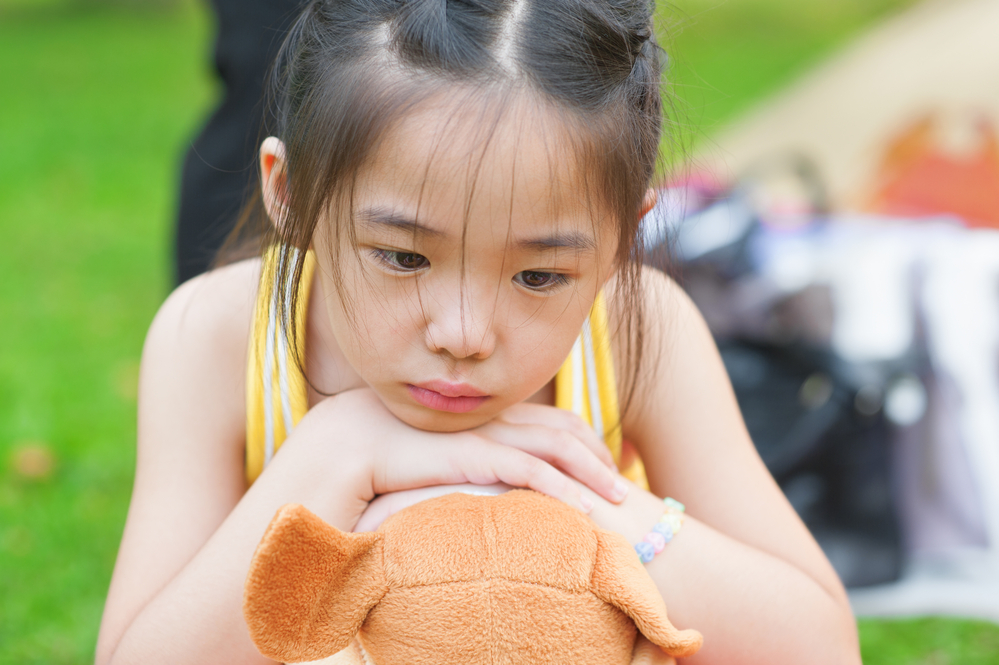
Wondering if your child might be depressed?
Most children go through times when they feel sad, lonely or depressed. However, if your child appears to be sad and down on most days which affects his/her relationships, interactions with others and daily activities, your child might have childhood depression.
Childhood depression is a serious mental health condition that requires medical assessment and treatment.
How is childhood depression different from “feeling blue”?
Childhood depression is different from the “blues” feeling that children get as they grow up. While it is completely normal for a child to feel sad, lonely or irritable, one of the warning signs of depression in children is persistent sadness.
When a child experiences this kind of sadness, he/she feels alone, hopeless, helpless and worthless. This feeling of sadness is unending and disrupts every aspect of your child’s life.
Read also: 8 Warning Signs of Stress in Children
What causes depression in children?
While the causes of depression in children are unknown, it is believed to be caused by a combination of factors that relate to physical health, life events, family history, environment, genetic vulnerability and biochemical disturbance.
Signs and symptoms of childhood depression
The signs and symptoms of childhood depression vary and largely depend on the child’s mood disorder.
Some signs and symptoms of childhood depression to look out for include:
- Appetite changes (either increased or decreased)
- Sleep changes (either sleeplessness or excessive sleep)
- Difficulty concentrating
- Fatigue and low energy
- Irritability or anger
- Physical discomforts (e.g. stomachache or headaches) that do not seem to respond to treatment
- Feelings of worthlessness or guilt
- Social withdrawal
- Vocal outbursts or crying
- Reduced ability to function during events and activities at home and in school
- Thoughts of death or suicide
Factors that increase the chances of childhood depression
Studies reveal that approximately 10% to 15% of children and teens experience some symptoms of depression.
A child has a higher chance of childhood depression if he/she has a family history of depression, particularly a parent who went through a depressive stage from young. Once a child experiences major depression, it is highly likely that he/she will develop another depression cycle within the next five years.
How is depression in children diagnosed?
If you notice symptoms of depression in your child for more than two weeks, do get this checked by a doctor or child psychologist. You’ll want to make sure that there are no underlying physical reasons that led to these symptoms and that your child receives the right treatment.
There are no specific tests that can clearly show the severity of childhood depression, but there are tools such as questionnaires (for both the child and his/her parents) and interviews by a mental health professional that can lead to an accurate diagnosis.
Psychological testing may also help to clarify the diagnosis and help doctors and mental health professionals make more accurate treatment recommendations. Information from teachers, friends and classmates can help to detect symptoms of childhood depression during your child’s regular activities which were not there before.
How is childhood depression treated?
Treatment for childhood depression includes psychotherapy (counseling sessions) and medication. Your child’s doctor may suggest psychotherapy first and consider antidepressants as the next course of treatment if there is no significant improvement in the symptoms.
Research has shown that a combination of psychotherapy and medication is the most effective way to treat childhood depression successfully.
Do note, however, that antidepressants may increase the risk of suicidal thoughts and behaviour in children with depression. Always discuss your concerns with your doctor and work towards a treatment path that will benefit your child.
Can childhood depression be overcome without treatment?
As childhood depression tends to come and go intermittently, recovery can be spontaneous without having to resort to therapy and medication.
However, once a child has an episode of childhood depression, it is highly likely that he/she will get depressed again. Without proper treatment, the consequences of childhood depression can be extremely serious, and even fatal.
Read also: Types of Risky Play Your Child Needs























